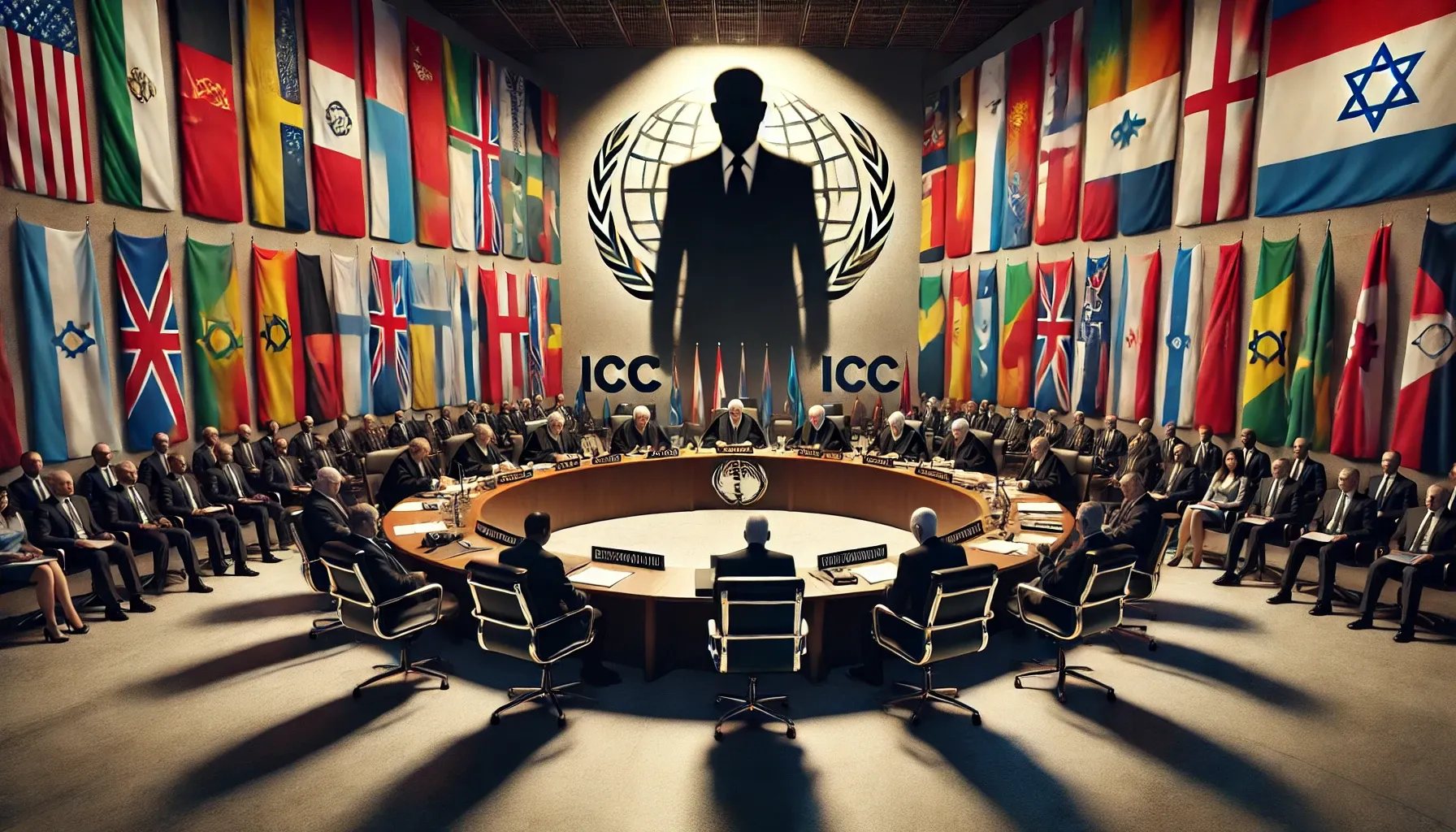The ICC’s arrest warrant against Netanyahu for war crimes has ignited global division. While nations like Spain pledge compliance, allies like Hungary and the U.S. reject the move, questioning international justice.

The International Criminal Court (ICC) made global headlines in November 2024 by issuing an arrest warrant against Israeli Prime Minister Benjamin Netanyahu and former Defence Minister Yoav Gallant. Accused of heinous war crimes and crimes against humanity, their actions during the Gaza conflict between October 2023 and May 2024 have drawn sharp criticism worldwide. The charges focus on Israel’s siege of Gaza, which the ICC claims deliberately deprived civilians of food, water, medicine, and essential resources, resulting in catastrophic loss of life and widespread suffering.
The decision has polarized the international community. While some nations, like Spain and Ireland, pledged to enforce the warrants, others, such as Hungary, have dismissed them outright. This historic move raises critical questions about accountability, justice, and the global enforcement of international law.
Heinous Crimes: Allegations Against Netanyahu
- Crimes Against Humanity:
The ICC alleges that Netanyahu and Gallant “intentionally and knowingly deprived Gaza’s civilian population of resources indispensable for survival.” This included food, water, medical supplies, fuel, and electricity. - Mass Starvation as a Tactic:
Prosecutors claim that the siege amounted to “mass starvation”, a tactic aimed at subjugating the civilian population of Gaza. - Death Toll and Suffering:
Palestinian health authorities report 44,056 deaths and 104,286 injuries in Gaza since the conflict began on October 7, 2023. The civilian population bore the brunt of airstrikes, blockades, and resource deprivation. - Systematic Destruction:
The ICC emphasized the deliberate targeting of essential infrastructure, leaving hospitals, schools, and homes in ruins. - Netanyahu’s Rejection:
Netanyahu called the accusations “absurd, false, and antisemitic,” and likened the ICC’s actions to a modern-day Dreyfus trial.
Hungary’s Open Defiance
- Orbán’s Support for Netanyahu:
Hungarian Prime Minister Viktor Orbán dismissed the ICC warrant as “outrageously brazen” and “cynical.” Orbán assured Netanyahu immunity within Hungary, stating, “We have no choice but to defy this decision.” - Hungary’s Legal Position:
Although Hungary ratified the Rome Statute, it has not incorporated the ICC’s mandates into domestic law, allowing Orbán to sidestep enforcement. - Invitation to Netanyahu:
In a controversial move, Orbán invited Netanyahu to visit Hungary, signaling solidarity with Israel and disdain for international judicial oversight.
Global Reactions: A Deep Divide
Nations Supporting ICC Compliance
- Spain:
Spanish authorities confirmed they would enforce the warrant if Netanyahu visited, with Labour Minister Yolanda Díaz declaring, “The genocide of the Palestinian people cannot go unpunished.” - Ireland:
Prime Minister Simon Harris affirmed Ireland’s support for the ICC, stating, “We will urgently assist in implementing its decisions.” - Other Nations:
Switzerland, Portugal, and the Netherlands pledged to comply with the warrants, reinforcing their commitment to international law.
Nations Opposing or Hesitant to Act
- United States:
The Biden administration rejected the ICC’s decision, with White House spokeswoman Karine Jean-Pierre stating, “We fundamentally reject these arrest warrants.” U.S. officials accused the ICC of bias and cited Israel’s non-membership in the ICC as a basis for non-compliance. - Italy:
Italy criticized the ICC for equating Israel with terrorist organizations like Hamas, calling the decision “legally flawed and morally questionable.” - France and Germany:
Both nations avoided direct commitments, citing the legal complexity of enforcing the warrants.
Hamas’s Role and Reactions
- Hamas Commander Charged:
The ICC also issued an arrest warrant for Hamas’s Mohammed Deif, accusing him of murder, torture, and sexual violence during the October 2023 attacks that killed over 1,100 Israelis. - Hamas Welcomes ICC’s Move:
Hamas praised the warrants against Netanyahu and Gallant as “a step toward justice” but emphasized the need for global enforcement. - Skepticism in Gaza:
Many Palestinians remain doubtful about the ICC’s ability to enforce the warrants, citing U.S. influence and geopolitical challenges.
Implications for International Justice
- Weapon Transfers to Israel:
Legal experts argue that the ICC’s actions may force nations to reconsider arms sales to Israel. Professor Neve Gordan stated, “Countries must reassess weapon transfers used in crimes against humanity.” - A Precedent for Accountability:
By targeting leaders of a democratic nation, the ICC has set a significant precedent, challenging the global perception of accountability and justice. - Diplomatic Fallout:
The warrants have strained alliances, exposing deep divisions between nations prioritizing human rights and those prioritizing political allegiances.
Sources: Al Jazeera & The Guardian.





